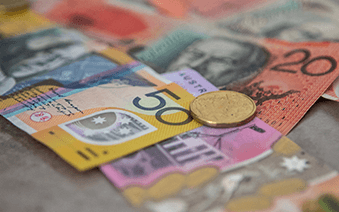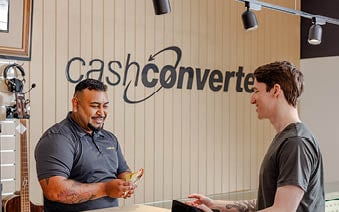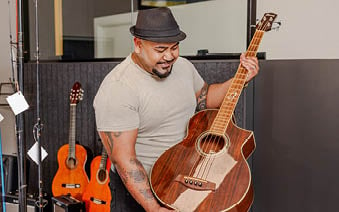As consumers, it’s important to recognise that every purchase we make has an impact. We are now consuming 100 billion tonnes of materials every year. The increasing global population has meant the demand for goods has risen, too, from clothing to homewares and anything in between.
According to the UN, between 2000 and 2019 our consumption of products rose by more than 65%. That’s 95.1 billion metric tonnes of stuff.
Aside from the immediate impact to your wallet, every item has been manufactured with varying impacts to the environment. Then, once you’re done with it, many items will go into landfill or a facility as trash – never to be used again.
That’s where the circular economy comes in.
Think about the way we, as customers, typically consume. We purchase, use, and throw away items all the time. Unfortunately, these items are not always manufactured sustainably.
The meaning of a circular economy is re-thinking the process to make our consumption more sustainable, both at the manufacturing step as well as after the purchase. It’s end to end.
In simple terms, if manufacturers make items more durable and reusable, and consumers are mindful about how to reuse or pass on their items, we can all contribute to a circular economy.
Think of it like an ecosystem – a product is made sustainably, is used by the customer, then incorporated back into the economy through finding a new owner, repurposing, or recycling to keep the product and its materials alive.
So a circular economy aims to reduce the environmental impact of production and consumption. Simple, right? Maybe.
Instead of doing things how they’ve always been done, which negatively impacts the environment, a circular economy phases out processes that are harmful to health and nature.
An important part of the circular economy is choosing what to do with the items that have already been manufactured.
A circular economy focuses on keeping items in use for as long as possible, whether that’s through improving their durability, reuse, repair, refurbishment, or recycling the materials to be repurposed in other products. For example, instead of throwing out an item that could be easily repaired, take the time to fix it so you can continue using it rather than contributing to landfill.
This one speaks for itself. A circular economy incorporates using renewable energy rather than fossil fuels, creating a regenerative ecosystem.
Read about circular economy versus green economy.
Having a more circular economy in Australia can affect us all in a more positive way.
There are two big wins here.
If items are made to last, our throwaway culture will start to see some changes. There’ll be less need to pop out to the shop to replace a faulty item that you’ve just chucked in the bin. Instead, it’ll work for longer and you’ll be more likely to repair a quality item.
The second win is second-hand shopping. Instead of buying brand new items, shopping second-hand is cheaper and it’s great for the environment. You can also utilise Buy Nothing groups in your local community to gift and receive things that are still in perfect working order – they’re just not needed any more.
While some jobs might become unnecessary there is a huge opportunity for new jobs in fields like recycling and repairs. With new ways of doing things, there’ll be spaces to innovate – like how to repurpose materials.
Reducing our usage and incorporating renewable resources into the circular economy can reduce global greenhouse gas emissions by 39% (World Resources Institute). Plus, the longer that items are used rather than thrown away the less they need to be manufactured.
Cutting out unnecessary waste and resources is a great step towards reducing the negative impact on climate change.
Focusing on the production process to make goods more durable and reliable is key to helping the bottom dollar for those on lower income.
These customers would be able to access better quality goods, costing them once at the checkout rather than multiple times within the same period.
It’s kind of like what Terry Pratchett wrote in Men at Arms with the boot analogy – being able to spend the extra money on quality boots would keep a man’s feet dry for 10 years, while the cheaper pair would wear twice as fast in that time to end up costing more in the long run. But in this case, we’d have the quality goods from the start.
The Circularity Report 2021 states that, globally, our circular impact on the economy is only at 8.6% (read our article on the circular economy in Australia for more information).
While we may not be there yet, there are small things that we can do to help.
A good start is to repurpose items that are still salvageable, such as upcycling an old chest of drawers that need a new coat of lacquer. Sell your unwanted items to not only make some extra cash but give others an opportunity to access second-hand alternatives.
If you’re buying something brand new, take a second to think about whether the item that you’d like to purchase could be bought second-hand. Perhaps there’s a cheaper alternative that’s in great condition.
These small acts can make a huge difference.
You can find a huge range of quality second-hand items on our online shop or at your local store. With knowledgeable staff on-hand to help and a Cashies 90-day warranty on most items, you’ll find what you need with confidence.

Answering your questions about loans and staying savvy

Get more bang for your buck with these handy tips.

Need some advice that’s not about cash? We can help.